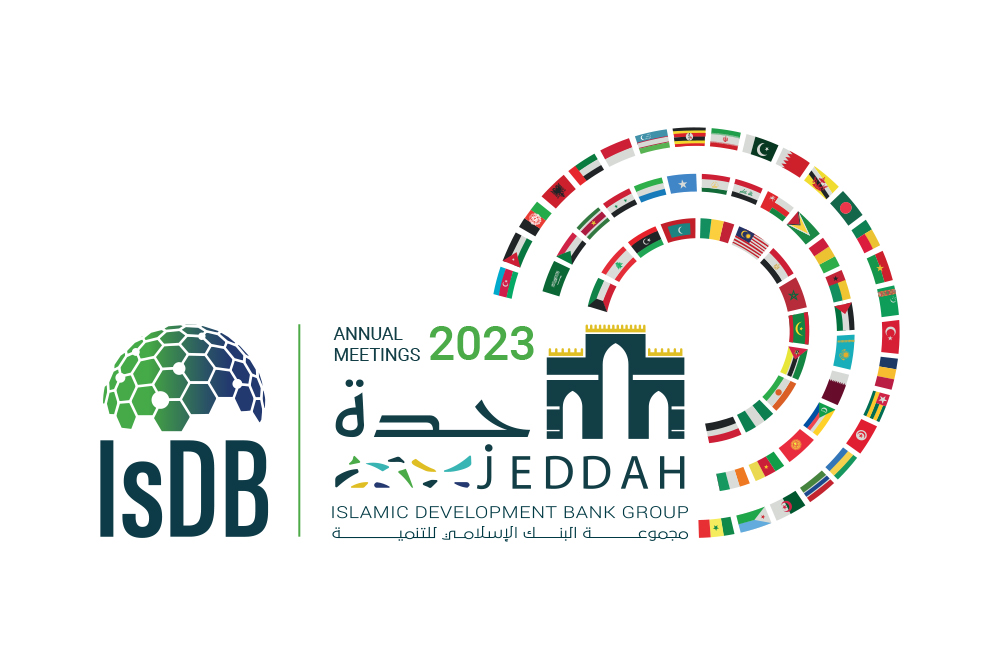Jeddah, Kingdom of Saudi Arabia, 12 May 2023 - Under the auspices of HE Dr. Muhammad Al Jasser, President of the Islamic Development Bank (IsDB), an Implementation Partner (IP) agreement was signed today between the IsDB, as the Trustee of the Afghanistan Humanitarian Trust Fund (AHTF), and the Danish Committee for Aid to Afghan Refugees (DACAAR), for a project aimed at facilitating sustainable access to safe drinking water in underserved areas of Afghanistan.
The agreement was signed by Eng. Mohammad J. Alsaati, Special Adviser to the IsDB President and AHTF Coordinator, and John Paul Morse, Director of DACAAR, on the sidelines of the 2023 IsDB Group Annual Meetings in Jeddah, Saudi Arabia. The signing event was attended by senior representatives from the Organization of Islamic Cooperation (OIC), King Salman Humanitarian Aid and Relief Center (KSrelief), Saudi Fund for Development (SFD), IsDB member countries, implementing partners, and other stakeholders, as well as guests.
IsDB President HE Dr. Muhammad Al Jasser stated: “The AHTF is a collective response of the OIC member countries to address a profound humanitarian crisis in Afghanistan. I applaud this initiative, as it reflects the theme of our 2023 Annual Meetings. Together, we are stronger and assist each other better when crises occur. Our joint efforts will lift a burden off the shoulders of our sisters and brothers in Afghanistan by allowing them access to clean water and better health, with the eradication of waterborne diseases. On this occasion, I would like to express my sincere thanks and gratitude to King Salman Humanitarian Aid and Relief Center for their USD 10 million contributions to the AHTF”.”
“We look forward to the expeditious completion of this project addressing the basic needs of local communities in Afghanistan,” added the IsDB President.
The AHTF will extend a grant of USD 540,000 to DACAAR to provide beneficiaries from vulnerable communities in Afghanistan’s Kabul, Nangarhar, Faryab, and Kunduz provinces with sustainable access to safe, clean drinking water. The AHTF grant funding comes from the contribution of KSRelief.
The project, which is a good example of effective partnerships, will provide safe, clean drinking water to 13,300 beneficiaries in remote rural areas, including building capacities of those beneficiaries in WASH practices and Efficient Operation & Maintenance (O&M) of water management infrastructure. The project’s activities include the construction of solar-powered clean water pumping systems and piped networks with metered household connections to provide clean water for drinking and cooking, reducing the increasing rates of waterborne diseases, including Acute Watery Diarrhea (AWD) and cholera, prevalent in the target areas. The project is in line with i) SDG Goal 6: Ensure availability and sustainable management of water and sanitation for all, ii) SDG Goal 3: Ensure healthy lives and promote well-being for all at all ages, iii) SDG Goal 11: Promote Sustainable Cities, iv) SDG Goal 17: Partnerships for Goals and v) SDG Goal 5: Gender Equality.
A community-based maintenance system in the form of Water Management Committees (WMC) will be deployed to ensure the long-term sustainability of the operation. These social structures will be bound by the terms of formal agreements involving local Community Development Councils (CDCs). They will follow established procedures to care for and maintain the infrastructure sustainably. WMCs will ensure complete, equitable, and unhindered access to the water supply system for all beneficiary households and oversee the operation and maintenance activities funded through local community members. Through the WMC, the local beneficiary community will fully control their water supply system. The committee will consider the best interests of the users they represent. The community can always resort to the CDC for re-electing WMC members if they do not meet their obligations fully and responsibly or if some members drop out or retire.
On the IP agreement, Eng. Mohammad J. Alsaati, Special Adviser to the IsDB President and AHTF Coordinator, said: “We enter into this IP agreement alongside DACAAR with the utmost commitment to improving the lives of underprivileged communities through safe access to clean water for drinking and cooking. Through our role as an AHTF trustee, we will continue to work towards creating positive, tangible change across Afghanistan through various long-term humanitarian efforts.”
John Paul Morse, Director of DACAAR, indicated: “The partnership, the first of its kind with IsDB, comes at a particularly critical time for Afghans as their suffering has increased significantly due to the recent political upheavals and the marked reduction in developmental funding for the country. The clean water to be provided by the project will be a critical resource for benefiting Afghan households, positively impacting their health and well-being and increasing their resilience against future shocks.”
The IP agreement comes when access to clean drinking water remains a major challenge in Afghanistan. This lack of access to clean water has led to widespread waterborne diseases such as diarrhea, cholera, and typhoid fever. Additionally, Afghanistan has one of the highest maternal and infant mortality rates worldwide due to inadequate healthcare facilities and limited access to essential healthcare services.
The AHTF serves as a vehicle to channel humanitarian assistance, address basic needs, and promote self-reliance and development in the country, following the decision of the Council of Foreign Ministers of the OIC at its 17th Extraordinary Session held on 19 December 2021 in Islamabad, Pakistan.




